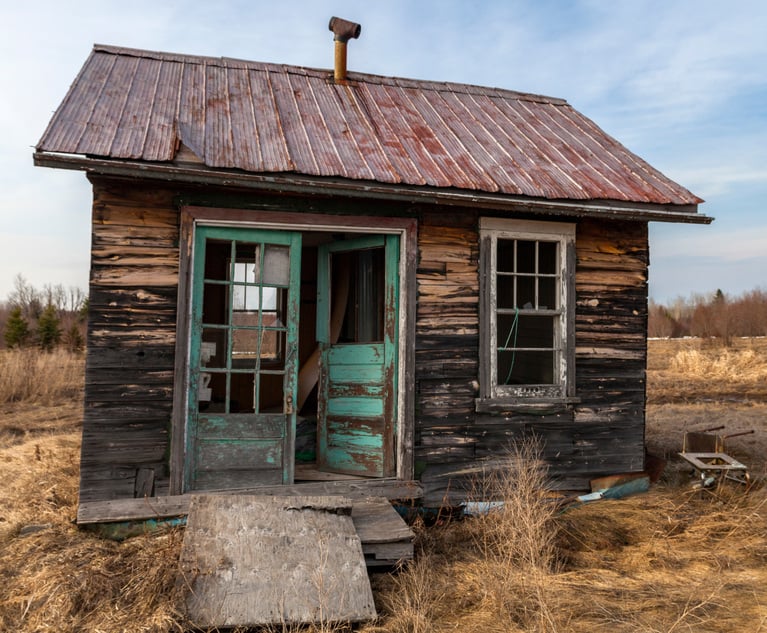 Assembly Speaker Craig Coughlin, D-Middlesex/courtesy photo
Assembly Speaker Craig Coughlin, D-Middlesex/courtesy photoNJ Legislature Makes History With First Remote Vote
"With that, I want to thank all members today for voting today and congratulations for making history," Assembly Speaker Craig Coughlin, D-Middlesex, said after the final bill was voted on.
March 25, 2020 at 07:12 PM
6 minute read
On Wednesday the New Jersey General Assembly made the unprecedented leap to protect its 80 members by holding its first-ever electronic voting session amid the prolonged COVID-19 crisis that has gripped the nation and the world.
As of Thursday afternoon, the number of novel coronavirus cases in New Jersey shot to 6,876, while 81 residents have died from the respiratory disease. The state announced nearly 2,500 new cases on Thursday, by far the highest single day increase since the first case was reported on March 4.
Gov. Murphy announced earlier in the day that President Trump has issued a Major Disaster Declaration for the state. The declaration will provide federal assistance to supplement statewide recovery efforts affected by the COVID-19 pandemic beginning on January 20, 2020. In his request to President Trump, dated March 23, Murphy said he requested two types of statewide assistance: individual assistance to individuals and households, and public assistance, which includes assistance for emergency work and the repair or replacement of disaster-damaged facilities.
Just the day before the first-ever teleconference by the 219th Legislature was made possible by a bill signed expeditiously by Murphy only days earlier as part of the "COVID-19 Emergency Response Package." A-3852/S-2296, which allows the conduct of state business and legislative sessions at locations other than Trenton during periods of emergency, as determined by the governor or the Legislature, was signed just hours after the Senate voted it through on March 19.
And the Assembly put the new law into play on Wednesday.
The five bills voted on in Wednesday's session were part of the COVID-19 emergency package that the Assembly and Senate passed earlier in the month. Each received a second reading on March 23 and included recommendations by the governor.
Aides in the Assembly Majority Office said that, rather than vote on the original bills again, new bills with new numbers were drafted that included the governor's recommendations.
The five bills were approved.
• A-3900/S-2304 would extend temporary disability and family leave benefits to workers who need to take time off work to recover from COVID-19 or to care for family members suffering from the disease. It would also expand earned sick leave benefits to cover mandatory or recommended quarantines. It passed by a 78-0-1 vote.
• A-3901 would allow professional or occupational licensing boards to grant licenses, certificates of registration and certifications on an expedited basis to individuals who hold a corresponding credential, during a state of emergency or a public health emergency (79-0 vote).
• A-3902 would permit the extension of deadlines for adopting county and municipal budgets when the governor has declared a public health emergency (79-0).
• A-3903 would allow notaries public to perform certain notarial acts remotely, using communication technology (78-0-1).
• A-3904 would allow remote learning to apply to the 180-day instruction requirement for school districts during extended emergency school closures (79-0).
"With that, I want to thank all members today for voting and congratulations for making history," Assembly Speaker Craig Coughlin, D-Middlesex, said after the final bill was voted on.
A-3844, the controversial bill pertaining to whether small businesses interrupted during the COVID-19 state of emergency could be covered by insurance, was not on the board list. Assembly Majority Leader Louis Greenwald, D-Camden, recently told the Law Journal that discussions on that measure were ongoing with all stakeholders.
The scheduled 2 p.m. remote session started at 2:10 after a few technical glitches were smoothed out. Votes were taken via teleconference call that could be heard live on njleg.state.nj.us/.
After each bill was introduced, Coughlin asked for a roll call vote. Each member's name was called out alphabetically by the clerk, and each was given the option of voting yea, nay or abstaining.
Just over a dozen people—Coughlin, a legislative clerk, some staff members from the Assembly Majority and Minority offices, and Office of Legislative Services, and one IT worker—were the only ones physically in the Assembly chambers for the vote.
Still, they were "way spaced apart," according to Kevin McArdle, director of communications for the General Assembly Majority Office.
"It went well," McArdle said in a phone interview after the vote. "We began planning for this ever since the governor signed off on A-3852, sponsored by Speaker Coughlin and Minority Leader [Jon] Bramnick, to be able to conduct the Assembly's business remotely."
Just after 8:00 p.m., Gov. Murphy signed A-3900/S-2304 sponsored by Senate President Steven Sweeney, D-Gloucester, to expand the State's Temporary Disability Insurance (TDI) and Family Leave Insurance (FLI) programs to provide more workers with access to paid leave benefits during public health emergencies.
"No one should have to decide between taking care of themselves or a sick family member and going to work during this pandemic," the governor said in a release. "With this new law, we are providing hardworking men and women with the protections that they deserve and ensuring a healthier place to live and work."
The four remaining bills will have to be voted on by the Senate before reaching Murphy's desk. It was not yet determined as of Wednesday evening when the Senate would hold a remote vote on them, according to a Senate Majority Office aide.
With the restrictions on public access to the Statehouse, and legislative activity limited only to timely and vital legislation, there is no Senate or Assembly voting session scheduled until May.
Assemblywoman Yvonne Lopez, D-Middlesex, was the only member absent for the Assembly's tele-vote, due to a noncoronavirus death in the family.
Also on Wednesday, Murphy signed Executive Order No. 110, requiring child care centers throughout the state to close on April 1 unless serving children of essential workers.
Late Tuesday, the governor added mobile phone shops, nurseries and garden stores, farming equipment stores, bicycle shops and livestock feed stores to the list of essential businesses that can continue to operate. They join grocery stores, pharmacies, and gas stations, among others, that can stay open during New Jersey's state of emergency.
This content has been archived. It is available through our partners, LexisNexis® and Bloomberg Law.
To view this content, please continue to their sites.
Not a Lexis Subscriber?
Subscribe Now
Not a Bloomberg Law Subscriber?
Subscribe Now
NOT FOR REPRINT
© 2024 ALM Global, LLC, All Rights Reserved. Request academic re-use from www.copyright.com. All other uses, submit a request to [email protected]. For more information visit Asset & Logo Licensing.
You Might Like
View All


Hit by Mail Truck: Man Agrees to $1.85M Settlement for Spinal Injuries
Trending Stories
Who Got The Work
Michael G. Bongiorno, Andrew Scott Dulberg and Elizabeth E. Driscoll from Wilmer Cutler Pickering Hale and Dorr have stepped in to represent Symbotic Inc., an A.I.-enabled technology platform that focuses on increasing supply chain efficiency, and other defendants in a pending shareholder derivative lawsuit. The case, filed Oct. 2 in Massachusetts District Court by the Brown Law Firm on behalf of Stephen Austen, accuses certain officers and directors of misleading investors in regard to Symbotic's potential for margin growth by failing to disclose that the company was not equipped to timely deploy its systems or manage expenses through project delays. The case, assigned to U.S. District Judge Nathaniel M. Gorton, is 1:24-cv-12522, Austen v. Cohen et al.
Who Got The Work
Edmund Polubinski and Marie Killmond of Davis Polk & Wardwell have entered appearances for data platform software development company MongoDB and other defendants in a pending shareholder derivative lawsuit. The action, filed Oct. 7 in New York Southern District Court by the Brown Law Firm, accuses the company's directors and/or officers of falsely expressing confidence in the company’s restructuring of its sales incentive plan and downplaying the severity of decreases in its upfront commitments. The case is 1:24-cv-07594, Roy v. Ittycheria et al.
Who Got The Work
Amy O. Bruchs and Kurt F. Ellison of Michael Best & Friedrich have entered appearances for Epic Systems Corp. in a pending employment discrimination lawsuit. The suit was filed Sept. 7 in Wisconsin Western District Court by Levine Eisberner LLC and Siri & Glimstad on behalf of a project manager who claims that he was wrongfully terminated after applying for a religious exemption to the defendant's COVID-19 vaccine mandate. The case, assigned to U.S. Magistrate Judge Anita Marie Boor, is 3:24-cv-00630, Secker, Nathan v. Epic Systems Corporation.
Who Got The Work
David X. Sullivan, Thomas J. Finn and Gregory A. Hall from McCarter & English have entered appearances for Sunrun Installation Services in a pending civil rights lawsuit. The complaint was filed Sept. 4 in Connecticut District Court by attorney Robert M. Berke on behalf of former employee George Edward Steins, who was arrested and charged with employing an unregistered home improvement salesperson. The complaint alleges that had Sunrun informed the Connecticut Department of Consumer Protection that the plaintiff's employment had ended in 2017 and that he no longer held Sunrun's home improvement contractor license, he would not have been hit with charges, which were dismissed in May 2024. The case, assigned to U.S. District Judge Jeffrey A. Meyer, is 3:24-cv-01423, Steins v. Sunrun, Inc. et al.
Who Got The Work
Greenberg Traurig shareholder Joshua L. Raskin has entered an appearance for boohoo.com UK Ltd. in a pending patent infringement lawsuit. The suit, filed Sept. 3 in Texas Eastern District Court by Rozier Hardt McDonough on behalf of Alto Dynamics, asserts five patents related to an online shopping platform. The case, assigned to U.S. District Judge Rodney Gilstrap, is 2:24-cv-00719, Alto Dynamics, LLC v. boohoo.com UK Limited.
Featured Firms
Law Offices of Gary Martin Hays & Associates, P.C.
(470) 294-1674
Law Offices of Mark E. Salomone
(857) 444-6468
Smith & Hassler
(713) 739-1250







